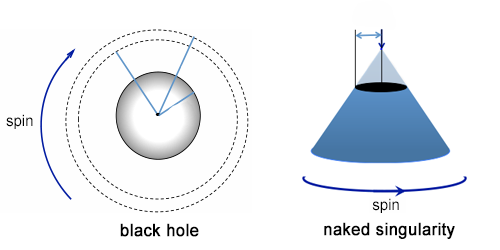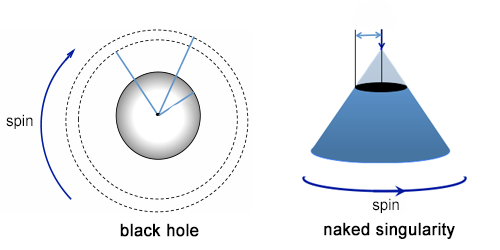Soothing Quantum Effects
Einstein’s general relativity remains the bedrock for describing the cosmos. The theory, however, predicts that black holes and other singularities possess features that could be physically unacceptable. Theoretical work by a team of researchers in Brazil, Italy, and Chile now indicates that when quantum-mechanical effects are included in the description of singularities, they may smooth out the spacetime, removing some of the problematic features coming from general relativity alone.
The authors focus on two important cases. The first is that of a rotating black hole (most black holes are expected to rotate because they originate from spinning stars). According to general relativity, this system has two surfaces surrounding the singularity, an outer horizon, and an inner, “Cauchy” horizon beyond which we have no way of predicting what will happen. The second difficulty is posed by “naked singularities,” infinite-mass-density regions that, unlike black holes, have no event horizons. Both the Cauchy horizon and naked singularities are undesirable because they lead to a loss of predictability: a viewer between the outer and inner horizon of a black hole, or one observing a naked singularity, could not predict the future of spacetime based on its initial condition.
The authors obtain an analytic solution to Einstein’s equations with the inclusion of a quantum field in two spatial dimensions, although they expect similar results in 3D. They confirm that a rotating black hole would loose its Cauchy horizon and that naked singularities would be surrounded by event horizons. In other words, they would turn into more acceptable black holes.
This research is published in Physical Review Letters.
–Matteo Rini
Matteo Rini is the Deputy Editor of Physics.





